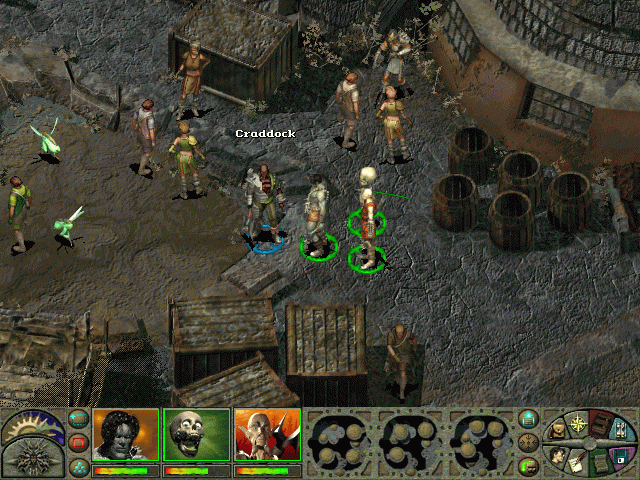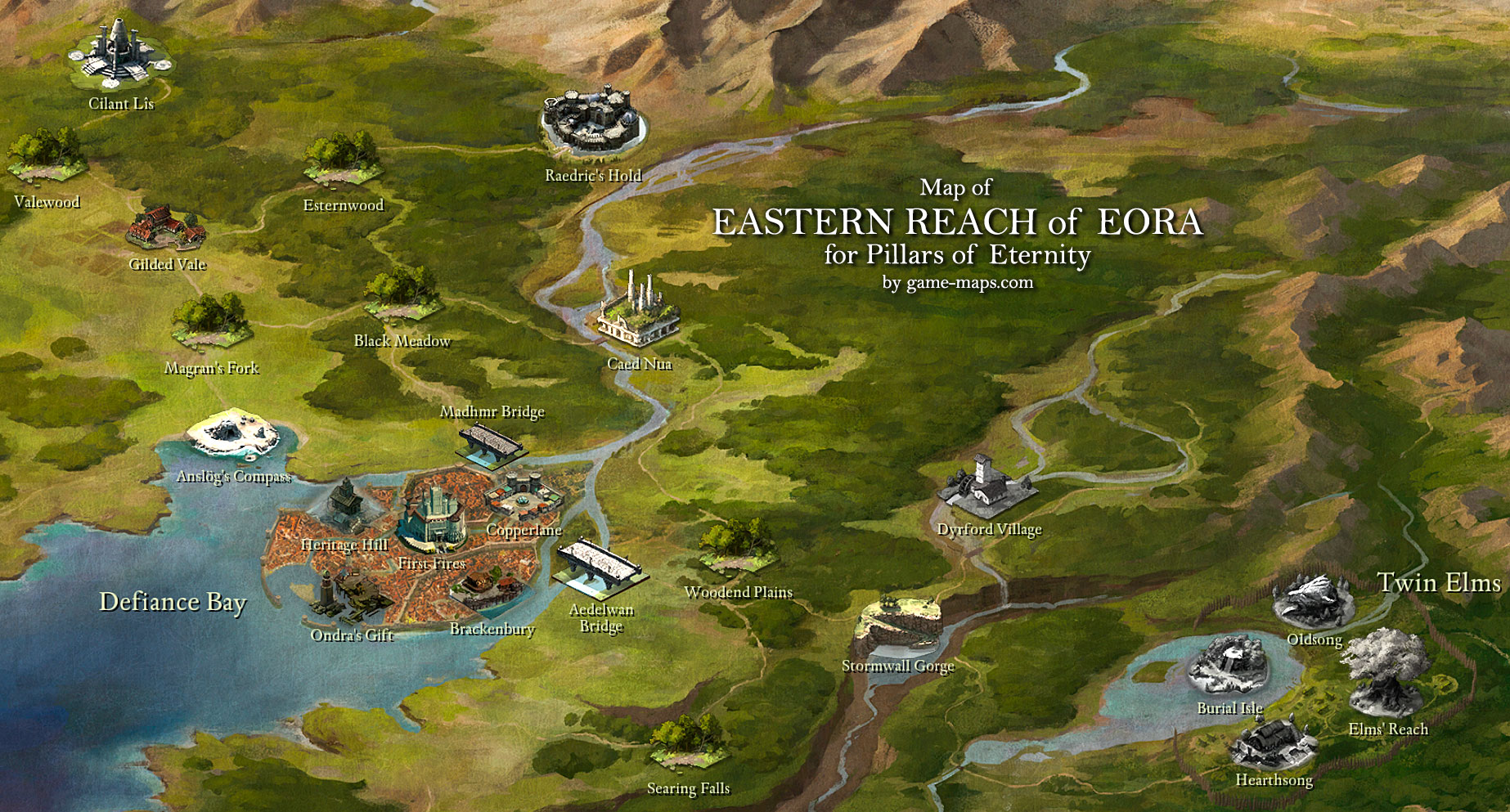It's simple. Where there is international trade, there are invariably money-changers. Where there are large-scale trade enterprises, there are invariably companies. Wherever large sums of money are needed for such an enterprise, there are always banks. That's how banks actually came to be! This was supposed to be a Renaissance-influenced setting, remember?

Yeah... adding half a dozen merchants, some crates, bored workers going all over the place and some dirt on the streets would elevate Copperlane from its dull state.
It would have conveyed the impression that there is some sort of economic activity in the city, as opposed to people just standing around, waiting to dispense quests or "comment on your reputation". I also find it very weird how everyone in the gift lives in such striking poverty as you are made aware when you enter their houses. Again, this isn't a fisher village, that's supposed to be the port area of a great city. It wouldn't be the best district, but people wouldn't be scraping for survival in run-down houses.
Instead of the docks area, the poorest part of town would have to be where the people from the inner areas of the country, who make their living from supplying the city, come to spend a night before turning back towards their villages, after they've sold their supplies at the market.
Historically, and this is regardless of whether we're talking about real history or fantasy (unless the fantasy is really childish stuff, which PoE isn't supposed to be), cities always mean a surplus of food is available in order to feed people who are not occupied with farming/producing food, but instead make a living off their artisan skills. Unless there are some crafts/industry, there would be nothing to hold the people in the city - if they can't feed themselves and their families through their labor, they would just revert to farming, because everyone has to eat. The city forms around a stronghold which is also the seat of political power, and in this case - also around the harbor - so a good position for engaging in commerce. The demand for industrial produce is there - the city needs masons, architects, workers, servants, woodworkers, smiths, cloth makers, tailors, weavers, jewelers, brewers, bakers, etc., the surplus of goods would have been sold to foreign buyers, everything looks fine, except the craftsmen themselves are nowhere to be seen and neither is a market of a sufficient size.
Also, I can't begin to imagine the quest opportunities which the various guilds would have presented in their struggles for preferential treatment by the central authority...
Obsidian have done communities right in FNV for example, like this guy explains (9:19):
https://youtu.be/wvwlt4FqmS0?list=PLF4UOVu5UKgiDCxJrZE7hydqaKNwd37bh&t=559 My guess is they were badly out of time, or badly mismanaged.








![Have Many Potato [2013] Codex 2013](/forums/smiles/campaign_tags/campaign_potato2013.png)
![The Year of Incline [2014] Codex 2014](/forums/smiles/campaign_tags/campaign_incline2014.png)













 Yeah... adding half a dozen merchants, some crates, bored workers going all over the place and some dirt on the streets would elevate Copperlane from its dull state.
Yeah... adding half a dozen merchants, some crates, bored workers going all over the place and some dirt on the streets would elevate Copperlane from its dull state.









